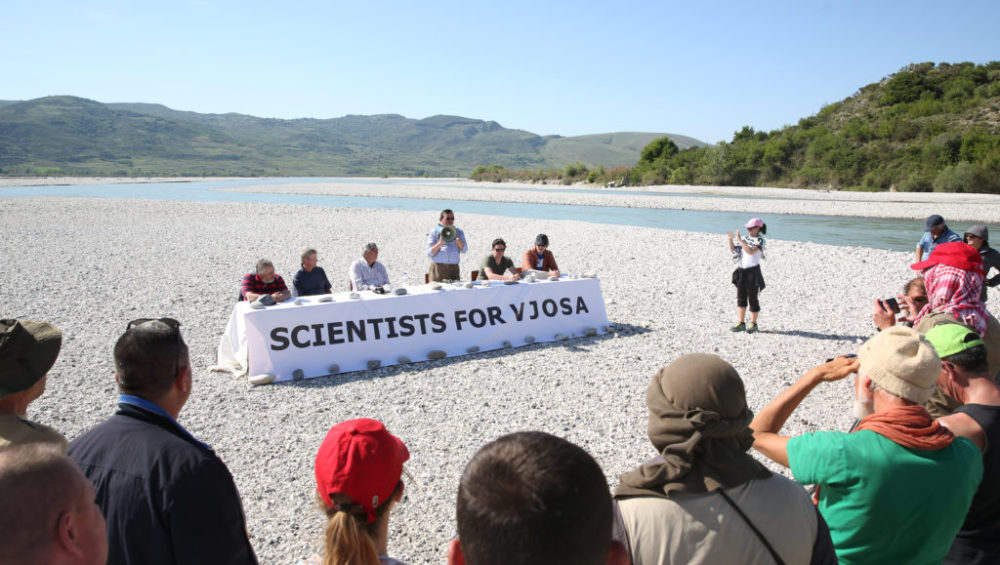Very few Albanians are aware that Vjosa, the largest river of southern Albania, is the last river in Europe, which, until now, has not changed its course”, says Professor Fridrich Shiemer, famous ecologist from the University of Vienna.
30 Albanian and foreign experts from Austria, Germany, Slovenia have gathered to study the Vjoses river for about 1 week, about the negative effects that the construction of the Pocem hydropower plant is expected to have. The team of environmental researchers has done research on a 5 km long and 2 km wide area near the village of Kutë, which is predicted to be flooded by the reservoir of the dam if the Pocem HPP is built. Experts talk about a complex result of the study, where in what they call the last wild river in Europe, a variety of living things and a complex landscape have been found.
For less than a week the working groups will explore the habitat while some of the collected data will be examined in the laboratory. However, direct observations in the field testify to a high expectation.

Scientists and nature experts on the Vjosa expedition. (c) A. Rama
“This is an unstudied area, so we don’t know the consequences that the construction of this concrete dam can cause. No doubt some of the lands will be flooded and the bed will change. The dam will block everything. Along with the flow, life will also stop. It takes a little more time to read nature, and decisions should be made by scientists, not politicians,” concludes Ulrich Eichelmann from RiverWach.
A group of journalists from “National Geographic”, “Radio ORF”, “Le Courriers des Balkans” and “ARTE” will be the only companions in this Balkan environmental adventure. Together with the scientists, the cameras of these powerful media will document everything.
The first results of the study indicate a diversity of living things in Vjosa. At a time when many animals and plants have long disappeared in the rivers of Europe, there are many of them in Vjosa.

Scientists have identified 20 different species of fish in just two days of study. According to them, the obtained data will be analyzed in the laboratory and the final obtained report will be presented to the Albanian government.
One of the most important works in the field was the mapping of the landscape of Vjosa.
“Our measurements show the mass transport of sediments in Vjosa. This indicates that the planned reservoir will be filled in 20-30 years. In the medium term, energy production will decrease drastically, leading to a situation where everyone is lost. However, it is very necessary to make further measurements”, says Dr Christoph Hauer, from the University of Natural Resources and Life Sciences in Vienna, Austria.

“This initiative is only the beginning of the assessment of the impacts that this hydropower plant will have on the Vjosa river, if it is built. A 3-year program is necessary to study the level of underground water, the risk of drying up of lagoons, the loss of living things and the change of the coastline due to erosion. Such a study would be necessary”, says Professor Aleko Miho.
But on Wednesday, April 26, the organizers have devised a special activity. In the afternoon, at 3:00 p.m., where the dam is supposed to be built, in the middle of the river, in Vjosa, where the bed branches and forms one of its many islands along the trajectory, the scientists, right on this island, that is, right in the middle of river, have decided to hold a press conference, one of the strangest, where the participants, as rarely, will arrive by boat!
You can find the news published in the media below:








